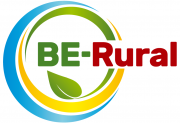The Macro-environment Surrounding BE-Rural’s Open Innovation Platforms
With the recent update of its Bioeconomy Strategy, the guidance of its advisory bodies and the engagement of regional groups and representatives, Europe has found a new track towards a sustainable bioeconomy, building on the notion that regions are the most appropriate territorial level at which to implement bioeconomy strategies. The BE-Rural project incorporates this regional focus into its core vision, putting its regional Open Innovation Platforms (OIPs) front and centre in the process of studying the potential for regional bioeconomies, and articulating and implementing strategies to make them a reality.
In providing an outline of the macro-environment at each of the OIP regions, this task has also served to shed light on key points of collaboration between them, confirming previous notions of potential synergies and revealing new areas where the regional bioeconomies of BE-Rural could complement each other and contribute to the vision of a sustainable EU-wide bioeconomy.


